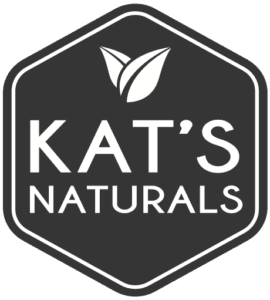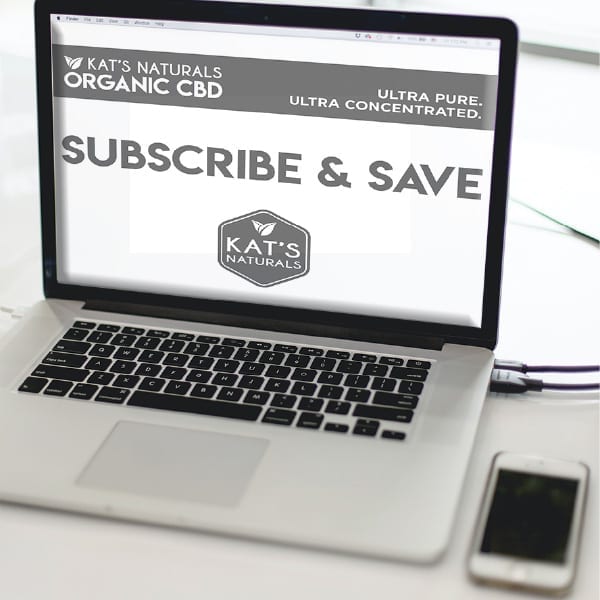No products in the cart.
Does The FDA Regulate CBD?
Industrial hemp is federally legal in the United States. However, the Food and Drug Administration (FDA) does not regulate CBD products or the industry.
Until recently, the ingredients in CBD, cannabis, and cannabis-derived remedies were unknown. But, in the last couple of years, more information, education, and testing have shed light on the industry, allowing consumers to research hemp extracts before they purchase one.
The CBD industry is growing despite a lack of regulation
The hemp industry is predicted to significantly grow. By 2025, Nielsen estimates that legalized cannabis sales in the U.S. will reach $41 billion. From that, $6 billion is supposed to come from hemp-derived products.
Brightfield Group, a Chicago-based research firm, also predicts strong growth for the CBD industry. The company estimates that sales of hemp-derived products will increase to $23.7 billion through 2023.
More companies will enter the CBD industry to take advantage of this growth. However, without regulation, some companies will cut corners with false test results, poor quality control, and zero customer service. The FDA has put some guidelines in place, but unfortunately, it hasn’t stopped most CBD companies from putting consumers’ health at risk.
A lack of FDA regulation does not equal lawlessness
Despite the lack of regulation, there are still guidelines that CBD companies have to follow to create safe and effective products. According to the FDA, for example, CBD brands cannot place supplements, nutrition, and dietary facts on their packaging.
In fact, companies that make questionable medical claims such as “a cure for cancer,” “treats Alzheimer’s disease,” or “an alternative treatment to diabetes,” are misleading. These brands state claims that make it seem like their products are FDA approved or regulated even when they’re not.
Regardless of the validity of what they’re saying, without FDA regulation, these statements are non-compliant. Making unsubstantiated remarks only raises a red flag and gives the FDA an opportunity to shut down companies that don’t comply with their guidelines to protect the public’s health.
How retailers are responding to the CBD industry
Because the CBD industry isn’t regulated, it makes it hard for some retailers to sell hemp-derived products. Most of them are unsure about the regulatory framework around the labeling, safety, and sale of CBD remedies.
However, the Food Marketing Institute sent a comment to the FDA regarding CBD products, including foods and beverages. The institute made it clear that retailers need a “clear and comprehensive” framework that explains how to sell and market CBD or cannabis-derived products.
Despite the lack of clarity, major retailers are still carrying CBD remedies. For example, consumers can find hemp-derived products in Whole Foods Market, The Kroger Co, CVS, Dierbergs Market, Fresh Thyme Farmers, and more.
With the 2018 Farm Bill, retailers know that CBD is no longer a controlled substance under federal law. They can confidently sell hemp-derived remedies even if the regulatory environment around the market is murky.
However, the FDA has made it clear that CBD and THC can’t be marketed as a dietary supplement or added to food. While the FDA’s role in the CBD industry is currently minimal, the organization still oversees food, drugs, cosmetics, and other goods within its jurisdiction that contain THC, CBD, or other cannabinoids.
How CBD companies can self-regulate to increase trust
At Kat’s Naturals, we strive to produce safe, consistent, and high-quality hemp extract products. Throughout our production journey, we’ve maintained our commitment to quality even when we started in a small building with zero capital.
In the beginning, we had our products imported from the EU. It was the only place that regulated how companies harvested and developed quality products. However, in 2016, Colorado began regulating how their crops were harvested and produced, so we made the switch to Colorado growers.
We then moved our production to a well-inspected commercial food kitchen, where we took extreme sanitary measures by handling our products with gloves and bottling our products in a clean environment.
With our profits, we built what the FDA calls an “inspect-able space.” However, it wasn’t long before our company outgrew the facility, forcing us to expand and add more people to our production team. During this phase, we made cleanliness a number one priority in our facility, and we implemented our own sanitary measures by requiring all employees to wear covers for their clothing, started keeping detailed records and created systems in line with GMP rules for other industries.
Today, we’re in a 9,000 square foot facility and are using the Good Manufacturing Practice (GMP) compliance standards to make sure our machinery is compliant and meets quality standards.
In addition, we’re working on our Current Good Manufacturing Practice (CGMP) certification, The US Hemp Authority offers the program, to ensure hemp farmers and producers are prioritizing consistent quality and not avoiding violations.
These certifications are a long, expensive process, but they set us apart from hemp extract companies that produce knock-off products. The more regulated a company can be, the better their remedies will be for consumers. This fact means our products naturally carry a higher price tag, but our commitment to quality and consumer safety is at the forefront.
However, we don’t just focus on getting the best certificates possible. We also make sure we have all our batches, ingredients, and data sheets logged to support the findings on our test results. All of our Certificates of Analysis (COAs) are filed, allowing us to update the batch numbers on a consistent basis.
Properly classifying hemp could help
Producing safe and quality CBD-based products is our number one priority. With that said, we are taking further steps to self-regulate to increase our credibility and prepare for when the FDA starts to regulate the industry. For example, our team at Kat’s Naturals reached out to the Department of Agriculture to see how they view (and categorize) hemp.
Unfortunately, The Department of Agriculture is still learning how to classify hemp. Is it produce, food, or another type of crop?
However, our team believes the Department of Agriculture could classify hemp as produce. In this case, every facility that handles hemp would have to become certified as a food manufacturer. We’d also have to become a certified food producer because our hemp would go into our sublingual and edibles as a certified food ingredient.
While the classification of hemp is yet to be determined by the FDA, passing hemp as a product could be a possibility. It’d provide our team and other hemp extract companies with regulations and specific guidelines to follow — and it’d give consumers every reason they need to trust that certain hemp extracts are safe and high-quality products.
The FDA is cracking down on companies that cut corners
Even though our team at Kat’s Naturals is taking steps to self-regulate and build trust with consumers, the FDA will eventually provide regulations for the hemp industry. Our company will be ready for the FDA’s rules because we’re already putting guidelines in place.
However, if hemp extract companies aren’t prepared or refuse to follow the FDA’s regulations, it could lead to severe consequences. In fact, the FDA is already penalizing certain companies.
In April 2019, the FDA and Federal Trade Commission (FTC) issued warning letters to three hemp extract businesses. The organizations reached out to Nutra Pure in Vancouver, Washington, PotNetwork Holdings in Fort Lauderdale, Florida, and Advanced Spine and Pain (Relievus) in Jenison, Michigan. The FDA and FTC warned against using unsubstantiated health claims to advertise hemp extract products.
Some of the medical claims included:
- “CBD reduced the rewarding effects of morphine and drug-seeking of heroin.”
- “CBD has demonstrated the ability to block spinal, peripheral, and gastrointestinal mechanisms responsible for the pain associated with migraines, fibromyalgia, IBS, and other related disorders.”
- “CBD successfully stopped cancer cells in multiple different cervical cancer varieties.”
Thankfully, our team is doing their due diligence and reaching out to the FDA to see how we need to label and advertise our products. In doing so, we’ve developed a good relationship with the FDA and have learned that their goal isn’t to shut down hemp extract companies. Instead, the organization is looking for compliance, which in turn protects the public.
Ultimately, we’re taking the necessary steps to be as compliant and self-regulated as possible — and other hemp extract companies should do the same. By putting rules and guidelines in place, our industry can provide customers with reliable, consistent, and high-quality products that are safe for everyone to consume.
With that said, high-quality products are more expensive as lab tests, certifications, and quality assurance are costly. However, we truly believe you get what you pay for, and we want consumers to work with reputable and trustworthy hemp extract companies regardless of the price.





